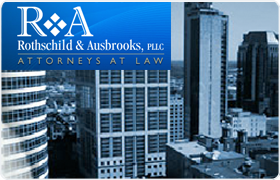Antioch Workout Lawyer, Tennessee
Sponsored Law Firm
-
 x
x

Click For More Info:
-
Rothschild & Ausbrooks, PLLC
1222 16th Ave. South, Suite 12 Nashville, TN 37212» view mapBankruptcy Filing, Chapter 7, Chapter 13 You Are Not Alone. We Can Help.
Our law firm encourages communication. We respond to calls and e-mails promptly. This is your case, and you will be involved every step of the way.
800-966-8531
Not enough matches for Antioch Workout lawyer.
Below are all Antioch Bankruptcy & Debt lawyers.
Tameka Smith
Business & Trade, Construction, Corporate, Credit & Debt
Status: In Good Standing Licensed: 24 Years
Justin Seamon
Administrative Law, Federal Appellate Practice, Business & Trade, Credit & Debt
Status: In Good Standing Licensed: 15 Years
John Teitenberg
Bankruptcy, Banking & Finance, Construction, Credit & Debt
Status: In Good Standing Licensed: 27 Years

 Mary Ausbrooks Nashville, TN
Mary Ausbrooks Nashville, TN Contact UsCall or Email
Contact UsCall or Email LinkedIn
LinkedIn
